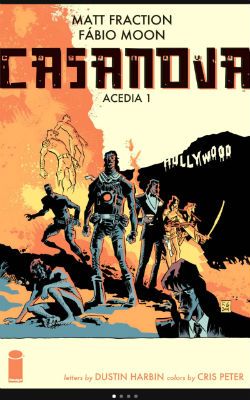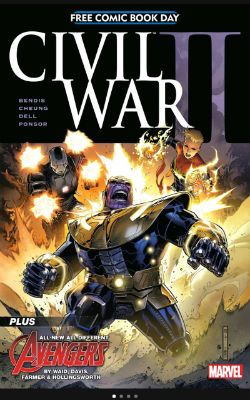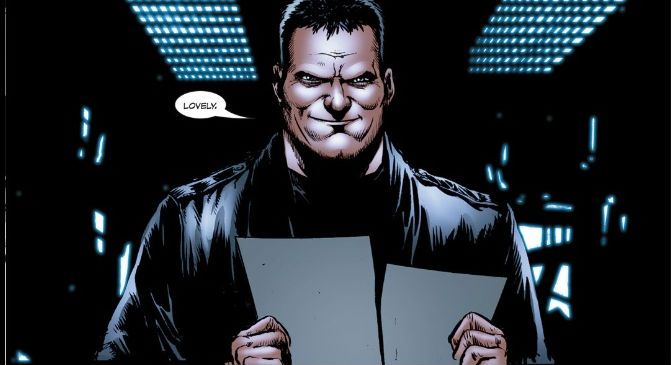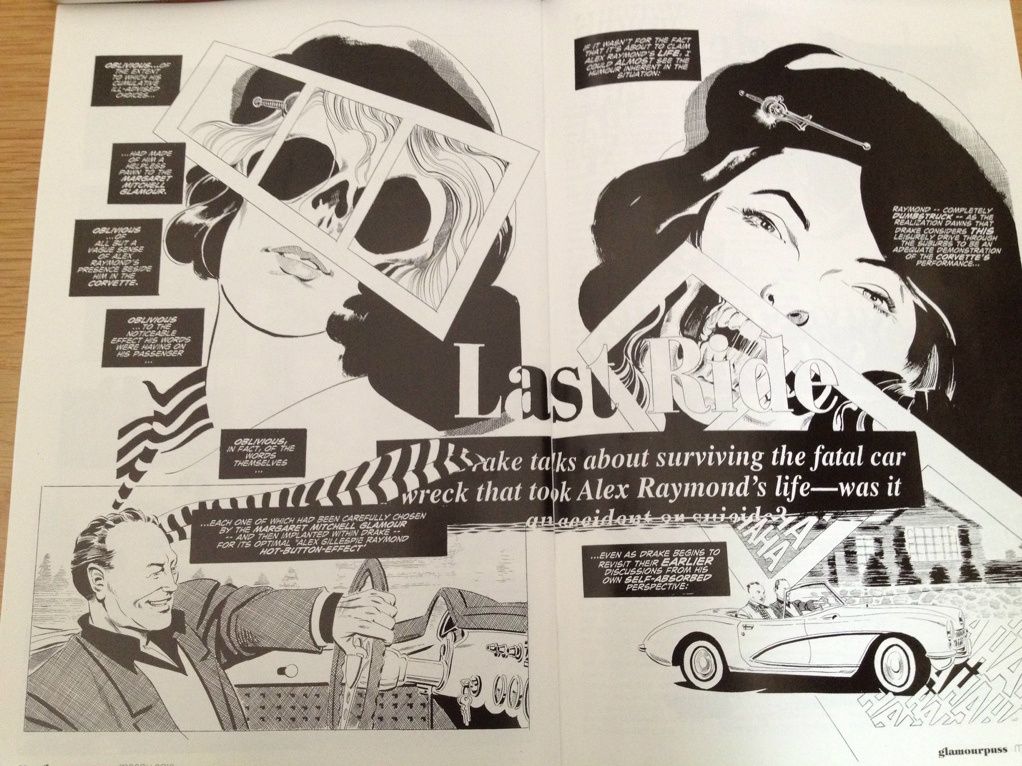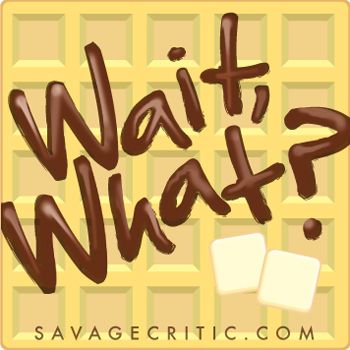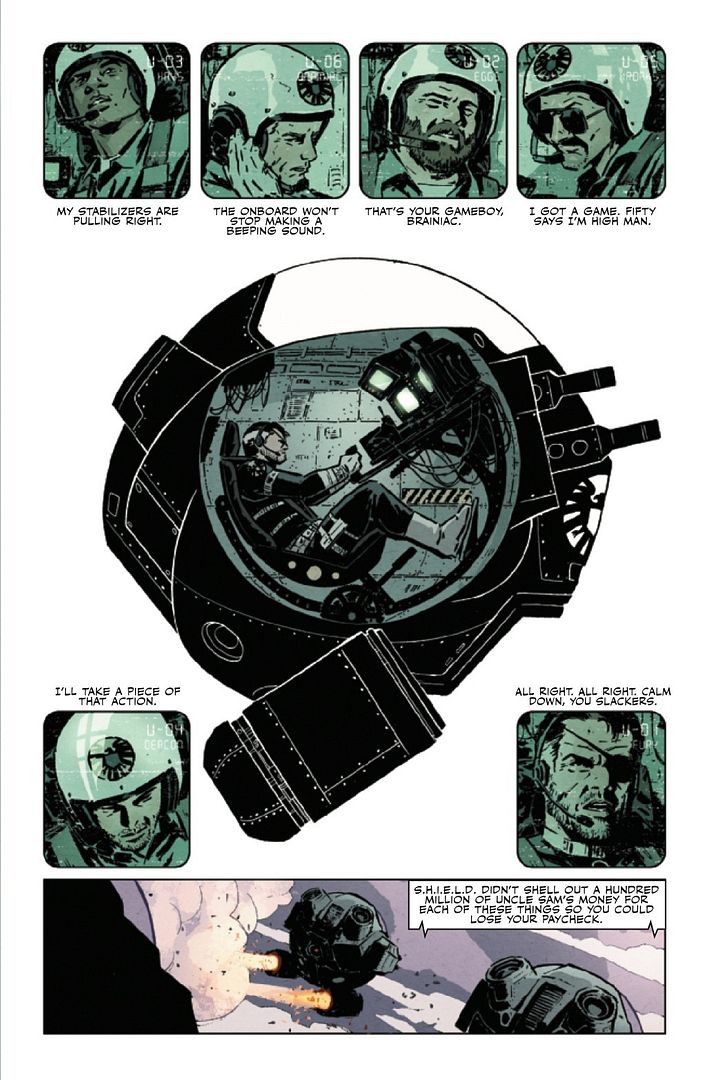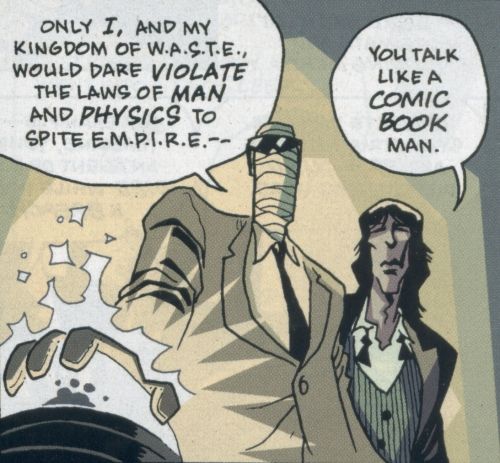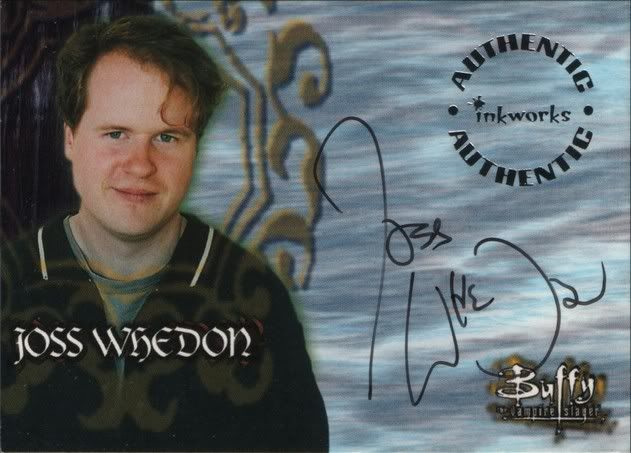“My WHOLE BODY experiences Disasters And It's—I'm WORRIED About It Getting To Me.” COMICS! Sometimes I Should Just Shake My Head And Leave The Room.
/So…The biggest names in comics! The biggest comics in comics! Several thousand words which can be summed up as, “Seriously? You jest, right? THIS?” Break out the bunting because the world’s sourest man is back! Nothing is good enough for him! He’s a big old stinker and no mistake! Comics by beloved creators spat at by a man with not a fraction of their talent! Oh, it’s good to be back. (We are back, right?) The following is dedicated to OKOliver who left OKComics without me having the chance to say goodbye. Good luck in your new life as a space gigolo! M-Wah! M-Wah!
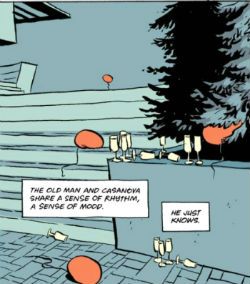 CASANOVA: NO JACKET REQUIRED #1 by Moon, Fraction, Harbin & Peter
CASANOVA: NO JACKET REQUIRED #1 by Moon, Fraction, Harbin & Peter
Anyway, this…
Someone must have been telling lies about John K., he knew he had done nothing wrong but, one morning, he found himself blocked from The Savage Critics… Ho ho ho, a little bit of Kaf-KA! there. Actually, I have no idea what happened. At first I thought Cap’n Hibbs had sacked me but…wait, he hasn’t has he? Anyway, I don’t know because I’m writing this while the site’s still down, so I don’t know what happened because as I type it’s still happening. If you’re reading this we’re BACK! If you’re not, then we’re NOT!
CASANOVA: SUSSUDIO#1 Art by Gabriel Ba & Fabio Moon Written by Matt Fraction & Michael Chabon Lettered by Dustin Harbin Coloured by Cris Peter Image Comics, £0.69 Digital (2015) CASANOVA created by Fraction, Moon & Ba
I’m not really a Matt Fraction man, so if you are you might want to just skip this one. But, as little time as I can find for his work in my withered and bitter life I do have to give Fraction kudos for the unflinching portrayal of vacuous self-obsession embodied by the almost heroically oblivious buffoon, Jerry Cornelius, er, Casanova Quinn. Few are the authors who would dare be so upfront about the distasteful shallowness of their lead. We’re all grown-ups hereabouts (we skew “old” at the SavCrits, so I hear) so we all know that no one needs to actually like a lead character. Still to actually invite, nay, compel, readers to loathe so fiercely the focus of a work of fiction is a feat worthy of attention, nay, applause. Applause I imagine Mick Jagger, er, Casanova Quinn, would expect purely as his due for his mere existence. The book’s right upfront about it as well. So foolish a fop have we here that he openly declares himself to be “good at people” (and, oh, the attention that “at” so conceitedly coerces!) Obviously, it is a secret only to people who utter such self-serving bilge that people who feel they are good “at” people are never anything of the sort, and that the people that they feel they are good “at” only endure their hilariously transparent horseshit (ugh, all that open body language, the direct gaze, the tilted head and, worst of all, the excessive interest in, no, really, you; how are you doing? Spare me.) with such forbearance because it would be cruel to just laugh in their patronising face as it swarms with smarm.
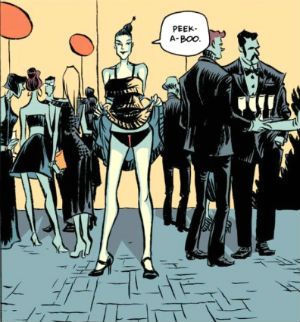 CASANOVA: FACE VALUE by Moon, Fraction, Harbin & Peter
CASANOVA: FACE VALUE by Moon, Fraction, Harbin & Peter
This total lack of self-awareness reaches a hilarious nadir when the book risks actually transmuting into a substance composed of pure condescension as Casanova Quinn explains his own very poor joke about an elephant in case we missed how clever he was being. Like all his type Casanova Quinn understands that if you have to explain your own joke the fault is always (always) that of the audience. There is no such thing as a bad joke just bad audiences. Just as there is no such thing as bad writing, just bad readers. Obviously. Cruelly, but understandably since he is so dulled by self-adoration, Quinn is made to inhabit a world as obsessed with surfaces as he himself is. His oleaginous self slithers through a slurry of outdated signifiers of alienation and joyless ostentation snipped from decades of pop culture (swimming pools, ladies flashing their knickers, gamines with balloons, joyless parties) all huddled together like confused refugees yanked without thought or feeling from other, better, works in the futile hope that their mere proximity will create fresh meaning. Casanova Quinn is the kind of person who has watched The Great Gatsby and thinks this is the same as reading The Great Gatsby. How can anyone know me, when I don’t even know myself?, thinks Casanova Quinn; so impressed with his own insight he practically shudders with the struggle not to climax. Casanova Quinn and his banal world are such flagrantly faux creations that it’s testament to the art of Ba and Moon and the muted citrus wash of Peters' colours that I kept coming back to the this series as long as I did. But enough. I shall find places where their art is better served, and inflict upon Casanova Quinn the, to him, ultimate insult of the snub. Postscript: Michael Chabon writes a strip in the back. This is a big deal because Michael Chabon not only won a Pulitzer Prize but, more importantly, wrote a whole book about old timey comics which was nice of him. Unfortunately his comic writing is very much exactly as good as you would expect someone his age trying to be H!pS@xyF*n would be. In short then, Casanova EH!
FCB: CIVIL WAR II©™ #1 Art by Jim Cheung & John Dell, Alan Davis & Mark Farmer Written by Brian Michael Bendis©™, Mark Waid Coloured by Justin Ponsor, Matt Hollingsworth Lettered by VC's Clayton Cowles, VC's Cory Petit Free! from Marvel Comics©™ All characters within created by human beings who had hopes, dreams and loves just like you, but they don't get a mention. You can look them up on Wikipedia if you want. I'm betting you don't want.
This was sent unbidden by hands unknown, so don’t get the idea that I’ve gone out of my way to read this. It was stuck in the packing of an almost criminally flamboyant purchase, just in case you had the idea I had fans who send me stuff. I don’t have fans (boo fucking hoo), and if I did they’d have more sense than to give stuff away. Also, don’t get the idea that I have anything against Brian Michael Bendis©™ as a human being, as a sentient entity, as a carbon based lifeform. He seems like a nice enough man; he’s certainly a wonderful provider for his family and I don’t doubt he is a loving father, a rewarding partner, and I’m even willing to entertain (under duress) the notion that he’s a regular sexual tyrannosaur (although I think that’s his business really). He does use his exalted position to bring in talented new artists and he obviously has a lot of love for the medium of comics. He’s well into it isn’t he? What with his perpetual tumbling and incessant tweeting, and he’s dutifully repaid Marvel©™’s faith in him like a good little soldier. And who has a heart so hard that it can be failed to be moved by his child like glee when Marvel©™ put him, and a bunch of other White Hot Fan Favourites©™, in a room to harvest their brains for ideas, like they are interchangeable cogs in a hugely dull machine. Oh, I wish to be as happy as Brian Michael Bendis©™ is when he tweets a picture of himself holding a Name Brand Burger next to the literary colossus Matt Fraction. There, I say, there is a man who has built a life and is enjoying it. There, right there, is a successful human being. Unfortunately, having said all that I think his writing is terrible. Dreadful stuff. Quite disheartening. He is consistent though, to give him his due; with all his work running the gamut from gibberish to mediocre with much of it falling into that sweet spot of mediocre gibberish. However, we have a saying over here – tackle the ball not the man. Hopefully that’s what I’ll be doing. (Hopefully that’s what I always do, but I am a bit of a prick so sometimes I probably slip.) Know ye this then: I wish Brian Michael Bendis©™ no ill will; and anyway I have a sneaky suspicion that the millions of dollars in his bank account will soften the feathery blows from some anonymous dude who should really save his energy to provide for his own family one fiftieth as well as the tiny dynamo Brian Michael Bendis©™. But, uh, y’know, maybe, just maybe, I mean this, uh, comic, will make the preceding cowardly caveats redundant. (SPOILER: it doesn’t. It’s bloody awful.)
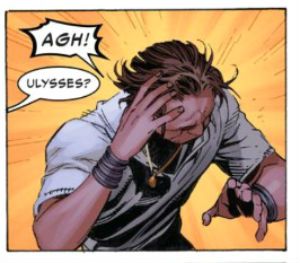 FCBD 2016 (CIVIL WAR) No.1 by Cheung & Dell, Bendis, Ponsor and Cowles
FCBD 2016 (CIVIL WAR) No.1 by Cheung & Dell, Bendis, Ponsor and Cowles
Events, eh? Why are they so hard? You’d think it would be a slam dunk every time. A big threat, heroes band together, some character work, a few set pieces and a page shaking climax. I’m up for that, I was up for that from the first time they did it (because I am old, did I mention I was old?) but as bovine and intellectually listless as even I am, the perpetually dreadful incarnations of this promising ideal soon withered my good will to naught. Tell you what, take a break from imagining punching me in the face and let me know of a good Event comic. Whoa, hold up there, podna, not one you liked; one that was good. E.g. I liked FINAL CRISIS but it was not exactly good was it? So take your time – a good Event comic. In your own time. At your own pace. No rush. Ah, there they are: the sounds of silence. This time out the latest in the never-ending stream of comics to which the only sane reaction is to wonder, “Who is buying this crap?” comes CIVIL WAR 2©™ FCBD#1. In which Brian Michael Bendis©™ bring his intellect to bear on the thorny philosophical problem of if the market has been gamed to the extent that a comic is guaranteed to sell hundreds of thousands of copies no matter what’s in it, what does it matter what’s in it? Only joking, it’s really about the thorny philosophical problem of how to rip off Minority Report and sleep at night. Haw, Haw I’m just joking! A regular jester I am with my fool’s cap jangling. Ting-a-ling! Ding-a-ling!
 FCBD 2016 (CIVIL WAR) No.1 by Cheung & Dell, Bendis, Ponsor and Cowles
FCBD 2016 (CIVIL WAR) No.1 by Cheung & Dell, Bendis, Ponsor and Cowles
Which is about all this…thing deserves. Because this…comic(?) is basically a bunch of painfully “cute” scenes which, uh, follow each other and kind of depend entirely on the generosity of the reader to pretend they are a coherent narrative. The first couple of pages set the tone as Brian Michael Bendis©™ takes a ridiculous amount of space to tell us that Cap’n Marvel©™ and War Machine©™ are an Item. Let me just pause to reassure any other crusty comics warhorses like myself that Cap’n Marvel©™ is now a lady. Marvel©™ may be chasing that progressive dollar like it made off with their car keys but they aren’t that progressive. Gays are a bit much, right? Sure, I mean a tip of the hat is in order for a white lady and a coloured man locking lips , but pernickety as ever I think this kind of Step Forward would be a lot better in a Good Comic. Call me Icarus, eh? Despite the fact that everyone in this scene is a grown-ass adult Cap’n Marvel©™ asks Black Panther©™ to turn round while she snogs War Machine©™. That’s not because adults behave like that but because Brian Michael Bendis©™ saw it in a TV programme, probably iCarly if I had to guess. Page wastage, “cute” scenes ported across from other media, adults acting like tweens, a narrative as taut as unset jelly (US: jello), so far so Brian Michael Bendis©™; all we need now is some of his Stellar Character Work©™ And whaddya know, as if on cue…Thanos©™ turns up! I know arguing about character consistency at this point in the history of North American genre comics just earns you pitying looks like you turned up at work with two jumpers on but sans trousers, but still…Thanos©™…Thanos™© just beams in bellowing and festooned with weaponry like he was just plucked from a particularly savage session of the new DOOM (VERY GOOD!) game. Does that sound like Thanos©™? Is that anyone’s idea of how Thanos©™ operates? Personally, and I’ve not really been paying attention so I could be wrong, I thought Thanos©™ was a master manipulator, a singular strategist, a regular Machiavelli of the Marvel©™ Universe. Apparently I was wrong, it seems that nowadays if Thanos©™ wants something Thanos©™ just covers himself in guns and bursts into view bellowing and fighting everything in sight until he gets what he wants. Stellar Character Work©™. Obviously, I’m guessing, this happens not because that behaviour is an accurate reflection of the established character of Thanos©™, but because that’s what the (ahem) plot demands. You could plug anyone into that role, you could even, maybe, and I’m just throwing this out there, plug someone suitable into that role. The only reason it’s Thanos©™ is because he appears for less time than it takes me to make sweet love, at the end of the credits of some Marvel©™ movie or other (I neither know nor care which, thanks). Of course it is possible behaving like a bear on fire might be Brian Michael Bendis©™’ idea of a regular Sun Tzu; I mean Brian Michael Bendis©™ is not exactly into that whole subtlety deal is he now. I mean, I know he thinks he is, but I think I’m fucking sunshine on legs so we can already see that self-perception isn’t always reliable.
 FCBD 2016 (CIVIL WAR) No.1 by Cheung & Dell, Bendis, Ponsor and Cowles
FCBD 2016 (CIVIL WAR) No.1 by Cheung & Dell, Bendis, Ponsor and Cowles
So, yeah, Thanos©™ is in it, but rather than have him act like Thanos™©, he just acts like a big violent idiot because the (cough) plot require someone to do that. Synergy’s on the whiteboard, so put The Thanos©™ in! Personally I don’t think this is pandering mindlessly enough at the cost of the internal consistency of the comic. They should have really blue-skied this one. I mean, sure people like Thanos©™ because he was at the end of that movie (nope, still don’t care), but they have also always liked chocolate, and even before chocolate they liked diddling themselves, so why not work that in? Have Thanos©™ turn up but instead of guns he could be studded with giant chocolate dildos. That should cover just about everybody. If you’re going to pander then don’t hold back, you know. Shame? Just a movie with Alan Ladd in, yeah? The Inhumans©™ are in it too, but the only interesting thing about The Imhumans©™ (outside of the work of Jack “The King” Kirby) is the big teleporting dog. Until Marvel©™ realise this The Inhumans©™ are just a dead loss. Al Ewing on LOCKJAW? I’d buy that! No, I wouldn’t, because I’m not paying Marvel prices. The fact this denies me access to Al Ewing’s work is a major thorn in my paw, but he’ll leave eventually. They all do. Except Brian Michael Bendis©™. So, yeah, Thanos©™ shows up and there’s a regular wing-ding. So life-or-death, so savage, so brutal a fight is this that She-Hulk©™ comments on Thanos©™’ funny chin while they are whaling away at each other. I can’t be doing with these soul chafingly awful attempts at quippy humour which constantly puncture any sense of drama in modern comics. Worse yet, She-Hulk©™ upbraids Thanos©™ for his poor sentence structure. That’s right, Brian Michael Bendis©™ (BRIAN. MICHAEL. BENDIS.©™) writes a character that has the self-absorbed gall to criticise another character Brian Michael Bendis©™ is writing for their poor English which Brian Michael Bendis©™ has written. Let that sink in for a bit. Take your time. Christ, if She-Hulk©™ were really that keen on correcting the grammatical infelicities of everyone in Brian Michael Bendis©™ comics she…she’d be very, very busy, let’s just leave it at that. I mean, there’s irony and then there’s just heartbreakingly unaware. Of course why Thanos©™ is talking like The Hulk©™ (it’s almost as if it was The Hulk©™ in the first place but was ineptly changed to Thanos at short notice©™. As if!) anyway is not explained, because it’s all just so bloody hilarious, so who cares. Except it isn’t hilarious, it’s jarring. We get that all these writers want to work in TV and that they have a sense of humour apparently completely shaped by sub-par sit-coms but, look, Everybody Loves Raymond is not something to aspire to. I’m sorry, but there it is.
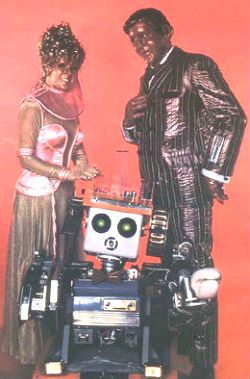 “Oh, Mr Robot!” is ©™ John K Inc.
“Oh, Mr Robot!” is ©™ John K Inc.
Mind you I’m not exactly well disposed to the TV. This Golden Age of Television? Look, just because you can name three TV series you liked in the past 5 years doesn’t make it a Golden Age of anything, it means there’s some stuff you liked on Television. That’s kind of the whole raison d’etre for television: to put stuff on you like. I liked The Wire too but one program does not a Golden Age make. Because I have to work with people younger than I am (when you get to my age most people are younger than you are, except the dead) sometimes they puppyishly tell me to watch something. Well, setting my monocle firmly in place, I did just that: I had a pop at that there Mr. Robots people squeal so deliciously about. Alas, the charms of a program about a pill popping magic hacker who wants to fuck his sister and is haunted by Christian Slater eluded me. With a title like Mr. Robot it should be about Christian Slater made up like he’s in Heartbeeps moonwalking about a patently fake set, with his arms set at right angles and slowly turning his head, while learning important lessons about human behaviour from the wacky family of his scatty inventor with whom he lodges. The series’ catch phrase would be “Oh, Mr. Robot!”, at which the camera would unfailingly zoom in on Christian Slater in a tuxedo and slathered with silver paint, body popping in confusion at the latest mistake he’s made in aping these crazy humans. “Oh, Mr. Robot!” You’ll all be saying it tomorrow. Or you could just read that VISION comic. Ha ha ha! You didn’t like that punchline did you?! No prisoners today! Oh, hey, thanks for sticking with this one; it’s gone a long way from the point hasn’t? It’s possible that the lack of focus was intentional and an indication of just how much serious critical consideration this comic(?) deserves, but on balance it’s more likely that I am a feckless twat. As a comic it was CRAP! Even as packing (remember that bit?) I think it was bettered by the polystyrene doohickeys it was stuffed in with. Nothing personal though, right? Oh, and it’s no good telling me it was free. So what? It should be shit? It’s supposed to be an enticement not a turn-off. Weirdly even if it's free I still turn my nose up at shit. Me and my high standards! Yes, the best thing about it was the art and we’re always told to say something about the art but why, seriously, why bother when the stench of the writing just makes any art at all an utter waste of talent. It’s pretty but unthrilling stuff, which given the stink of a script is a monumental testament to Cheung & Dell's professionalism. This is a flatulent jumble of dumb and it’s worth reiterating it’s CRAP! It’s like a poorly coded robot tried to write a comic – everything rings tinny and off. And cue:
 “Oh, Mr. Bendis!”
(Laughtrack annnnnnd roll CREDITS).
“Oh, Mr. Bendis!”
(Laughtrack annnnnnd roll CREDITS).
(N.B. There's also a story about The Wasp©™ by Waid and Davis & Farmer. I'm sure it's fine, but after the slackjawed pap I'd had just about enough of comics for a while.)
NEXT TIME: I burn even more bridges in "The Biz" as I take a “look” at some Brian Azzarello Bat-comics.
I was locked out in the dark but I never stopped loving – COMICS!!!


